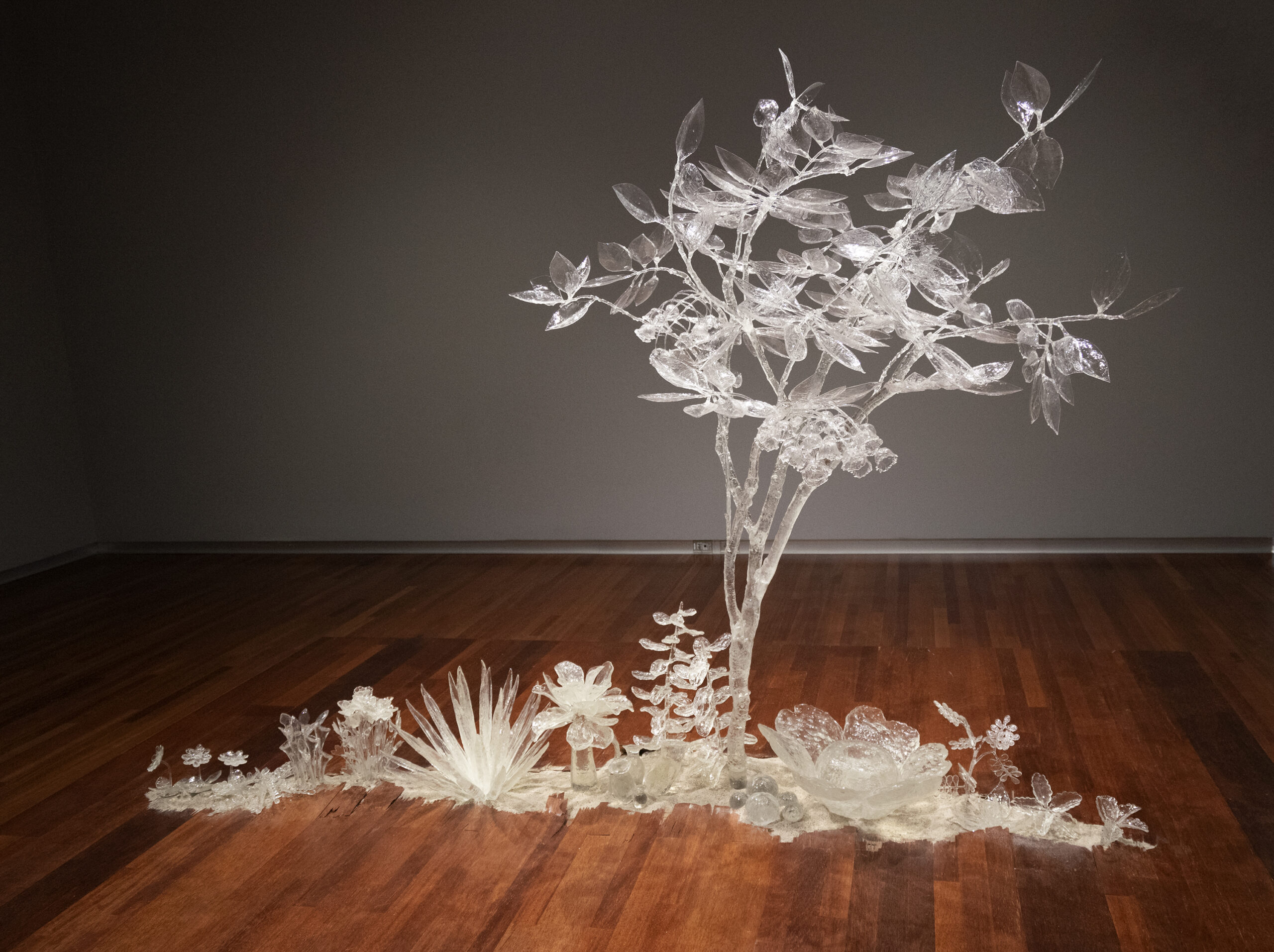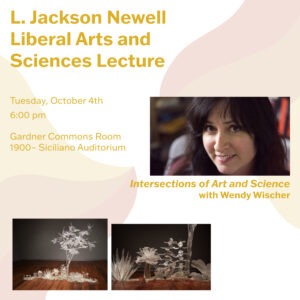
Congratulations to Wendy Wischer, Associate Professor of Sculpture Intermedia, awarded the L. Jackson Newell Fellowship in the Liberal Arts and Sciences! The Honors College at the University of Utah names an annual L. Jackson Newell Fellow in the Liberal Arts and Sciences each year. The award is named for L. Jackson Newell, who served as the Dean of Liberal Education (Undergraduate Studies) at the University of Utah for sixteen years, as President of Deep Springs College for nine years, and has spent a lifetime helping students, from all walks of life, engage with a life of the mind. In the spirit of Jack’s lifelong contributions to liberal arts and sciences education, the fellow combines expertise in their scholarly area with appreciation for transdisciplinary work across the liberal arts and sciences spectrum.
Wischer’s work spans a variety of media from sculptural objects, to installations, video, projection, light, sound, alternative forms of drawing, community based and public works:
My artwork has always been inspired by the natural environment and with our increasing global climate crisis, I am compelled to focus on environmental issues; finding pathways, and creating experiences, that translate data into personal meaning and create artwork that moves the viewer poetically. Through my creative explorations, often in collaboration with scientists, engineers and community collaborators, a wide range of data types are investigated to link nature with technology, science with mythology and personal identity with universal connections, while addressing our current climate crisis in hopes of finding impactful ways to connect people more deeply with the environments they live in and with each other.
My experience working collaboratively with other disciplines has shown how creative process and problem solving have the ability not only to help with broader impact and communication of ideas, but it also holds the potential to impact the research by expanding areas not directly related to the observable evidence. Addressing our global climate crisis and environmental issues demands new ways of thinking and perceiving to find solutions to the ever-increasing problems we face. Interdisciplinary research between the arts and sciences holds the potential for informing new pathways of research and dissemination that has not been realized without it, creating a beneficial flow in both directions.
 Learn more at Wischer's public lecture Intersections of Art and Science, on Tuesday, October 4, at 6pm in Gardner Commons Room 1900 - Siciliano Auditorium.
Learn more at Wischer's public lecture Intersections of Art and Science, on Tuesday, October 4, at 6pm in Gardner Commons Room 1900 - Siciliano Auditorium.